9 Key Principles for Mastering Sustainable Procurement
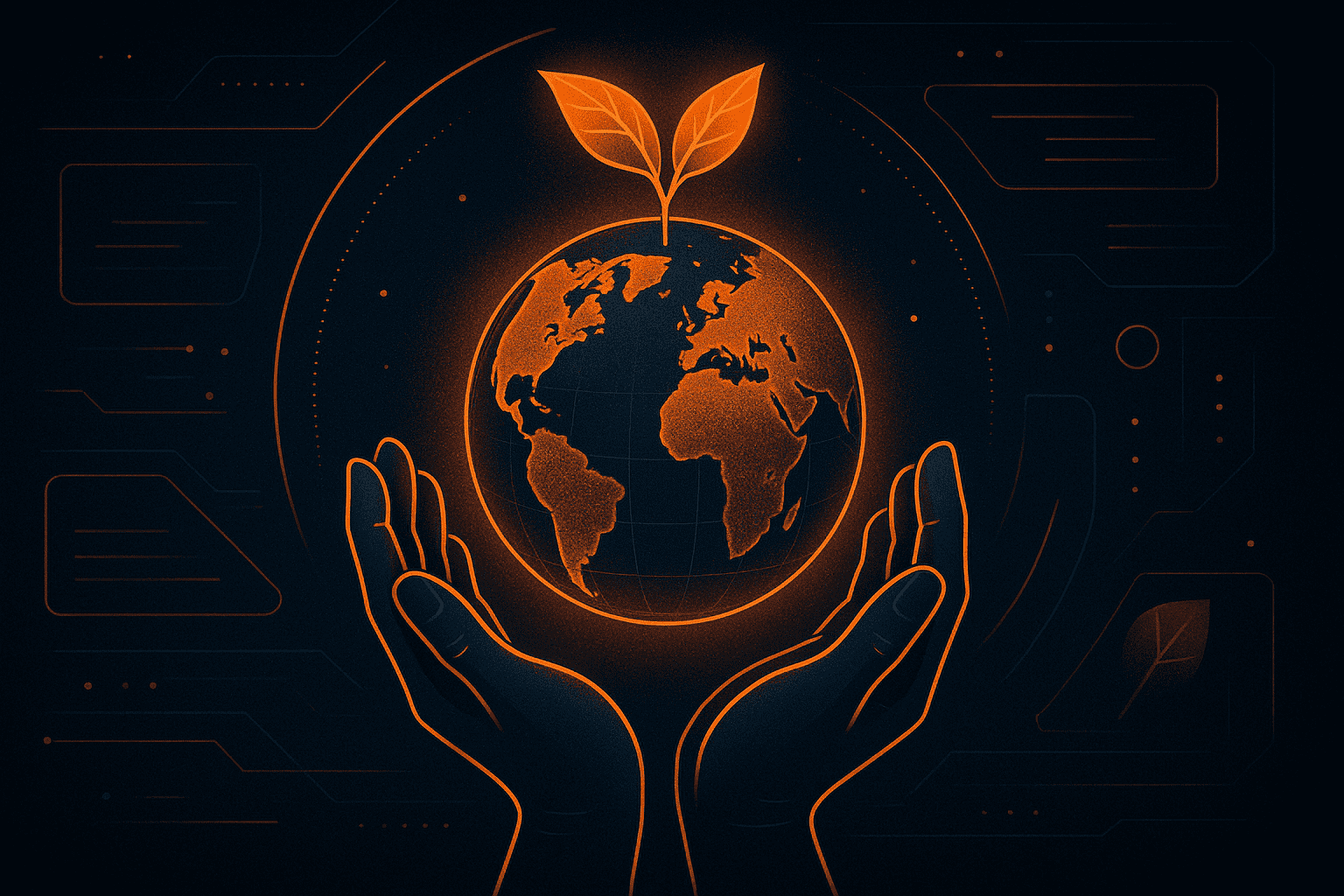

Key Takeaways:
You want to become a sustainable procurement expert and make a positive impact on the environment, society, and the economy?
That’s an excellent goal—one that can deliver meaningful benefits for both your organization and the wider community.
To help you get started, we’ve outlined nine key principles of sustainable procurement.
Each comes paired with inspiring, real-world examples of companies that are already doing it right and are leading the way in responsible sourcing.
Ready to join them?
Let’s dive in.
Let’s start with the most fundamental aspect of sustainable procurement: minimizing environmental harm.
This entails selecting products and services with a lower carbon footprint, reduced waste generation, and minimal use of natural resources across their entire lifecycle.
If you want to master sustainable procurement, this is where you begin.
You can take some inspiration from the Renault Group.
This automotive leader is constantly making sourcing decisions with the environment in mind.
For instance, in 2021, they chose Terrafame, a Finnish company operating one of the world’s largest EV battery chemical production lines, as their nickel sulphate supplier.

Source: IOM3
Renault partnered with Terrafame specifically for their sustainable edge.
Terrafame’s unique production method results in a carbon footprint over 60% lower than the industry average for nickel sulphate.
Gianluca De Ficchy, CEO, Mobilize at Renault, explained the significance of this move:
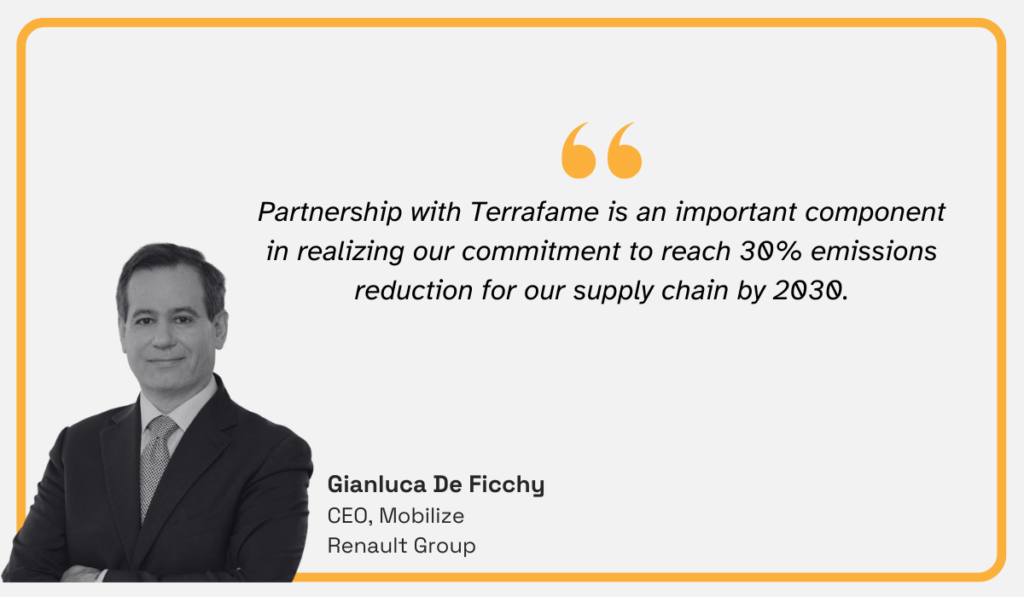
Illustration: Veridion / Quote: Renault Group
And that’s just one example.
Renault has also partnered with Vulcan to secure low-carbon lithium and teamed up with Veolia and Solvay to recycle battery materials in a closed loop.
Across all these initiatives, reducing the negative impact on the environment is the number one priority.
However, sustainability isn’t just about the environment.
If you’re serious about sustainable procurement, you can’t afford to overlook the social issues:
Take Marks & Spencer, for example.
Through their Global Sourcing Principles, they publicly communicate social responsibility commitments, targets, and standards that the suppliers must meet.
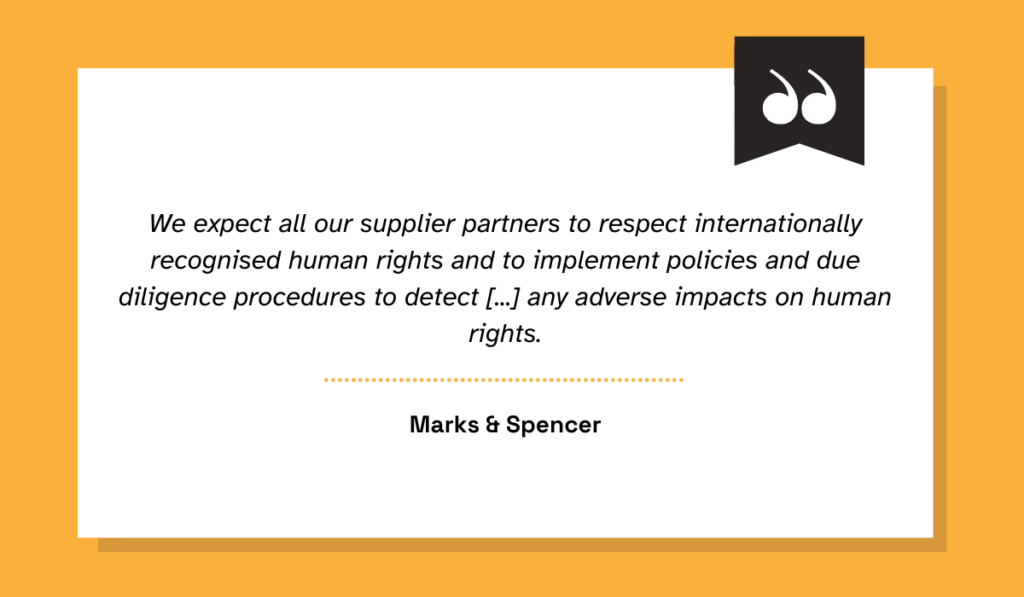
Illustration: Veridion / Quote: Marks & Spencer
But it’s not enough to simply publish your expectations online.
As a sustainable buyer, you should also actively monitor your supply chains to ensure complete accountability.
At M&S, they track supplier performance, conduct regular audits, and maintain open lines of communication to understand where their products come from and how people are treated along the way.
According to their website, they also prioritize thorough reporting:
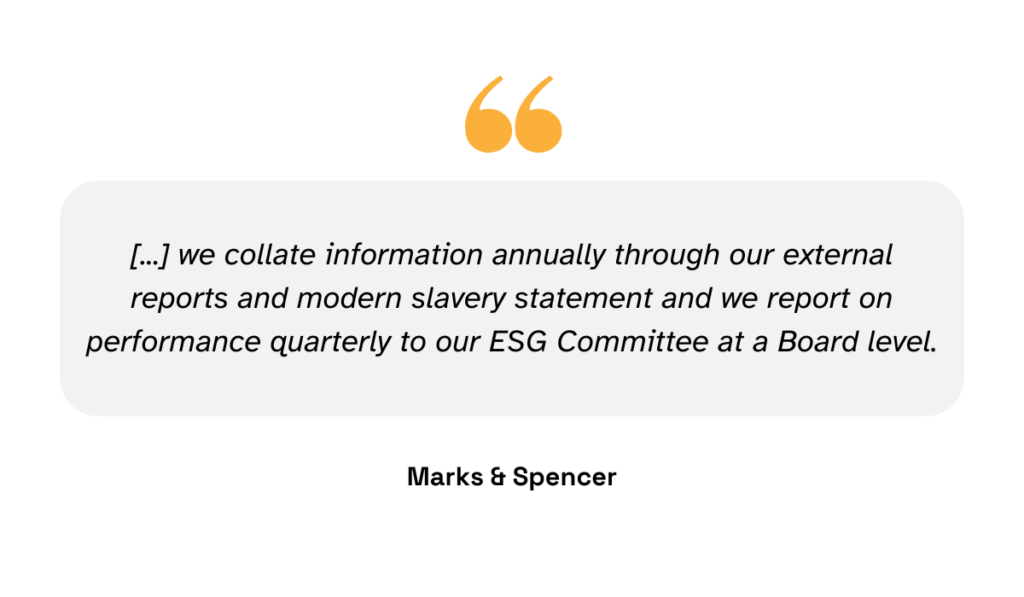
Illustration: Veridion / Quote: Marks & Spencer
So, if you’re aiming to improve your sustainable procurement efforts, take a cue from M&S.
Go beyond the environmental impact and start focusing on social responsibility.
Pay attention to how your suppliers treat their workers, support communities, and contribute to a fairer society.
You cannot achieve truly sustainable operations if you neglect these important issues.
One important aspect of social responsibility that’s been gaining significant attention is supplier diversity.
Sustainable companies are now making intentional efforts to source from small businesses, as well as minority-owned, women-owned, and other disadvantaged groups.
This not only promotes economic inclusion but also strengthens supply chains by boosting resilience, agility, and innovation.
In fact, a 2024 Supplier.io survey reveals some of the drivers behind supplier diversity programs:
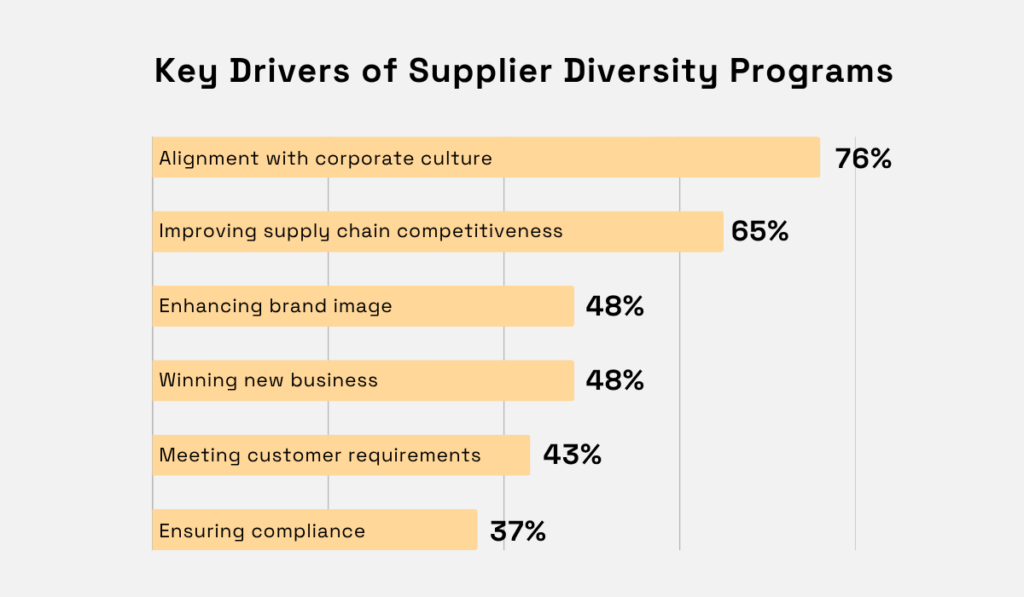
Illustration: Veridion / Data: Supplier.io
Clearly, diversity unlocks benefits on multiple levels, so it’s no surprise that more and more companies are embracing it.
Take Sodexo, for example.
As part of its Social Impact Pledge 2030, the French food services and facilities management company has committed to spending $1.26 billion with diverse suppliers.
Jean Renton, COO of Sodexo UK & Ireland, explained the importance of this commitment:
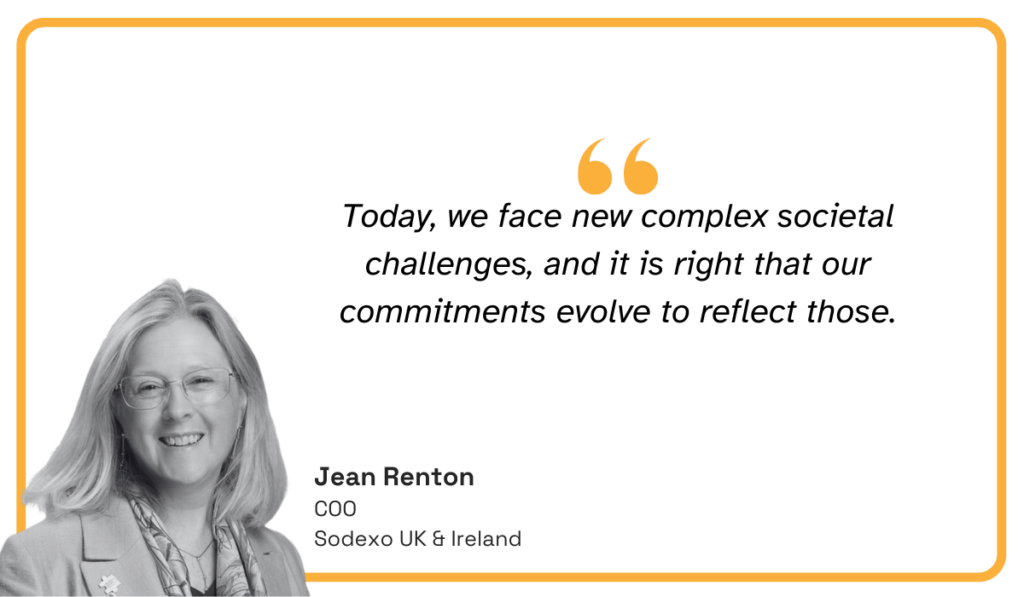
Illustration: Veridion / Quote: Supply Chain Digital
In short, sustainable organizations recognize that supplier diversity is a smart strategy, both socially and commercially.
It drives meaningful impact while also unlocking new ideas, products, and resilience in the supply chain.
As such, it’s worth investing in.
Another way companies create mutual benefits for themselves and the environment is by sourcing products and services locally.
And, according to data, this strategy is quite effective.
A 2024 PwC survey found that 59% of companies with at least modest supply chain localization saw real sustainability gains.
Even better, many reported significant boosts in performance, from increased resiliency and efficiency to faster market responsiveness, lower costs, and tighter quality control.
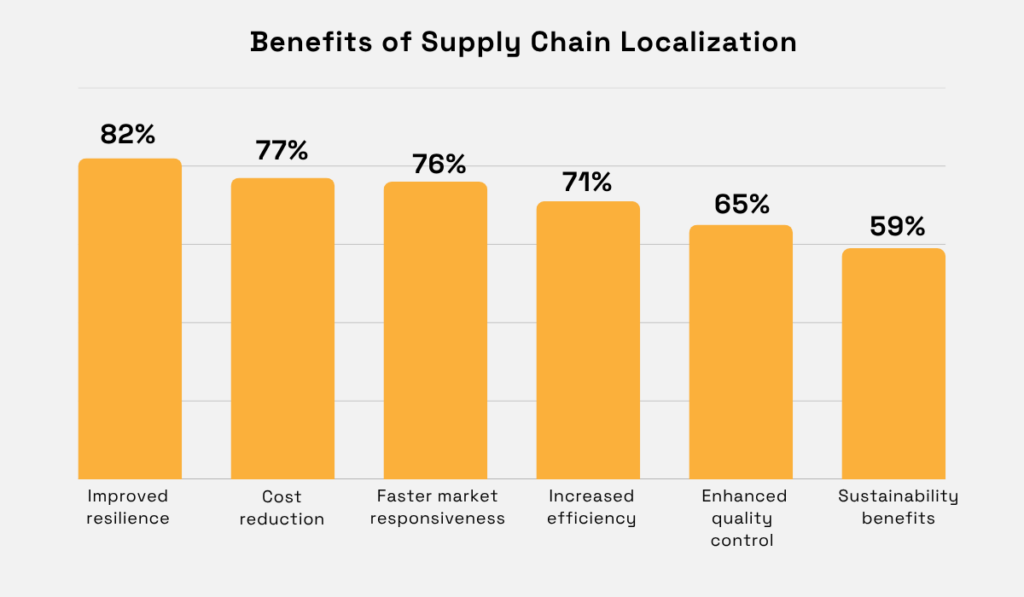
Illustration: Veridion / Data: PwC
Take SPAR, for example, a Dutch multinational franchise that supports independently owned and operated food retail stores.
SPAR Denmark, in particular, actively partners with local producers and continues to expand its range of locally sourced products.
Recently, this range grew by more than 200 products, contributing to a 10% increase in the turnover of Danish goods in SPAR stores.
SPAR Denmark’s CEO, Esben Keller, commented:
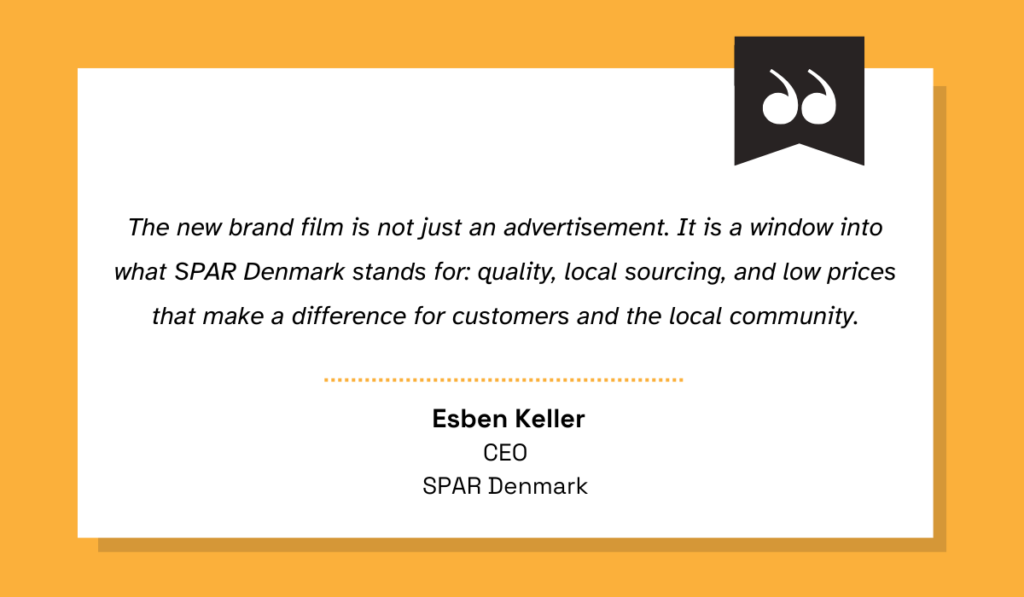
Illustration: Veridion / Quote: SPAR
Much like diversity initiatives, local sourcing strengthens communities.
It supports local economies and meets consumer demand for authenticity, while also improving the brand’s reputation and making the supply chain more resilient.
For any company serious about sustainable procurement, this is a strategy that delivers on all fronts.
Sustainable procurement is no longer just a “nice-to-have” but a real regulatory obligation.
That’s why it’s important to always align your sourcing decisions with recognized ESG frameworks and require suppliers to do the same.
This is the only way to ensure the effectiveness of your sustainable strategies and prevent reputational, legal, and financial risks.
However, Elizabeth Meyer, Chief Legal Officer at Novata, a certified B Corp that helps private markets navigate ESG data management, explains that compliance is trickier than ever:
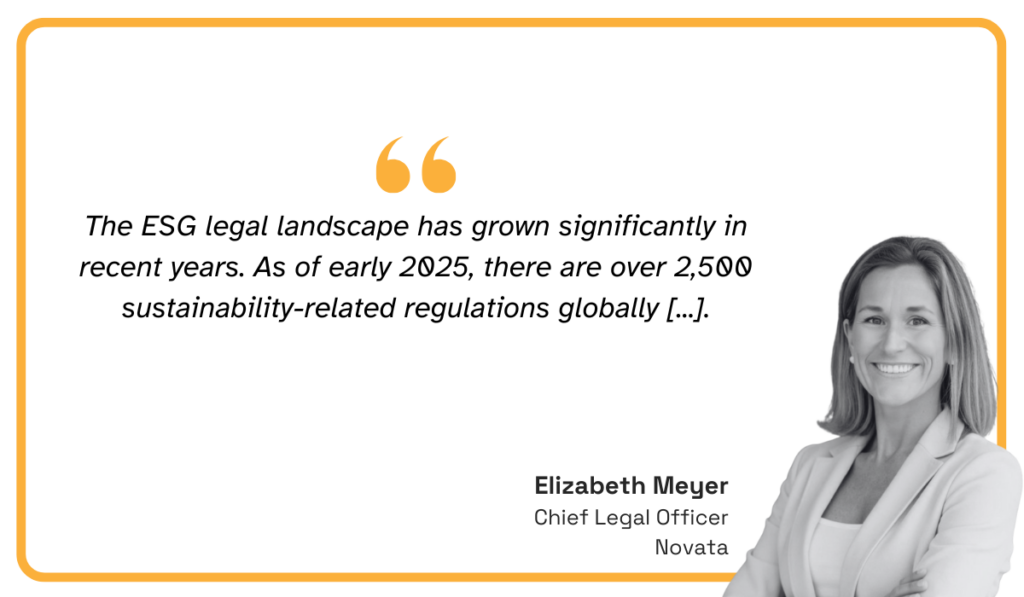
Illustration: Veridion / Quote: Climate Action
Yet, if you don’t stay on top of these regulations, it’ll only undermine your sustainability efforts and expose your company to serious trouble.
Just look at Hyundai.
In 2024, the company faced a major lawsuit after one of its suppliers was caught using “oppressive” child labor, employing a 13-year-old girl for up to 60 hours a week on an assembly line.
Everyone involved was also asked to surrender profits related to the use of child labor.
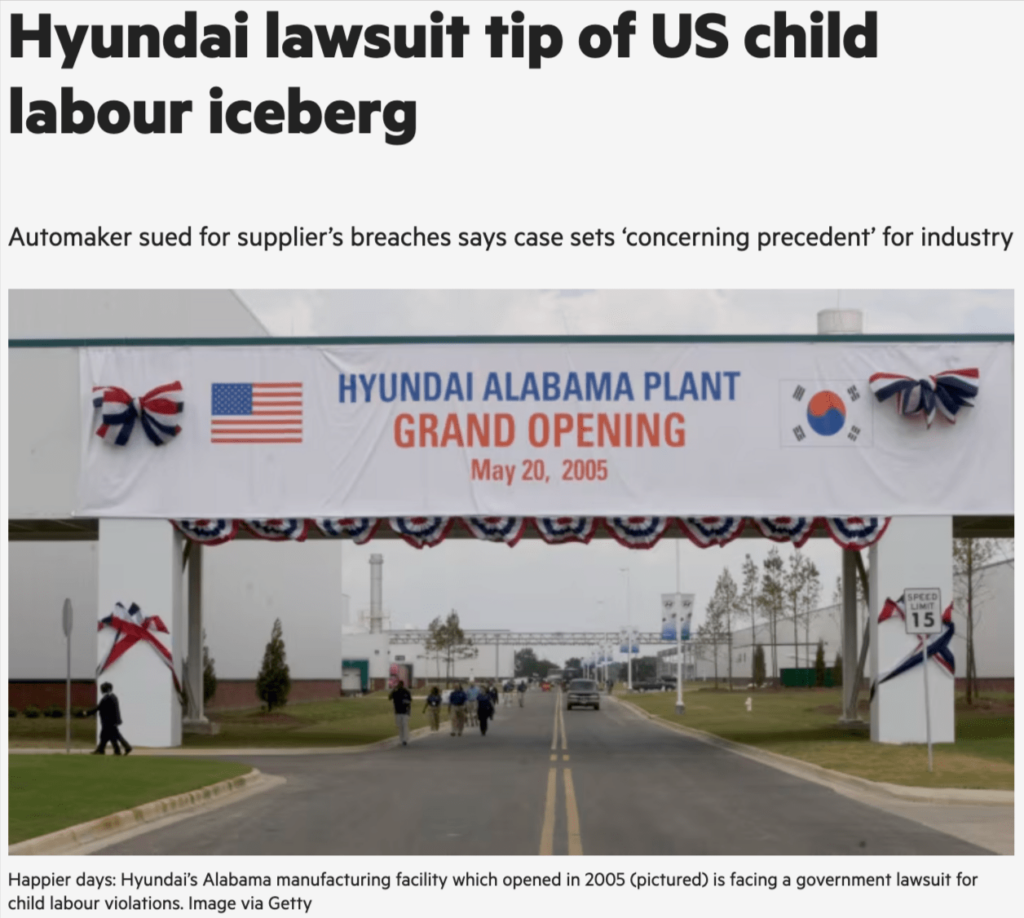
Source: fDi Intelligence
This case perfectly illustrates a growing global trend: companies are now increasingly held accountable for ESG violations within their supply chains, whether they know about them or not.
In other words, your partners’ compliance is your compliance.
If you want procurement that’s truly sustainable and risk-free, then every link in your supply chain needs to follow the rules.
Yes, your suppliers must be held accountable, but that doesn’t mean you should immediately stop working with those who fall short of sustainability expectations.
Instead, the best results often come from working with suppliers to improve over time.
You can:
Many smaller or emerging suppliers may lack the resources to meet your criteria from the start, but with the right support, they can become valuable and responsible partners.
Philips understands this well.
Through its Supplier Sustainability Strategy, the company helps suppliers improve their sustainability performance in a collaborative and structured way.
First, they evaluate a supplier’s ESG performance and identify areas for improvement.
Then they work with the supplier to build a step-by-step action plan, focused on real, measurable results.
Marnix van Ginneken, Chief ESG & Legal Officer at Philips, says this approach has been quite effective:
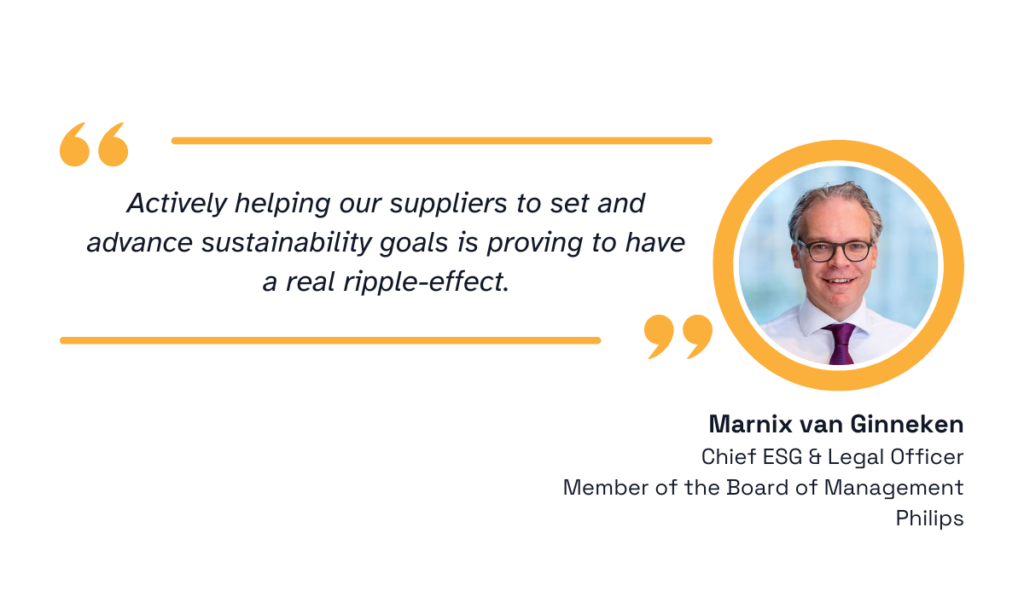
Illustration: Veridion / Quote: Procurement Magazine
Thanks to this, Philips was able to meet many of its sustainability targets.
The lesson here is clear: you can’t reach your goals without the help of your suppliers.
So don’t just hold them accountable—empower them.
Help them help you.
Cost will always be a big factor in sourcing, but sustainable procurement tries to balance immediate expenses with long-term value as much as possible.
This means moving beyond assessing suppliers based solely on their pricing and taking into account lifecycle costs, quality, reliability, and, of course, sustainability outcomes.
And such an approach pays off.
For example, Unilever reports saving $1.5 billion through sustainable practices between 2008 and 2021.
Company leaders have observed a clear trend: upfront investments in sustainability often lead to long-term savings.
Unilever’s CEO Alan Jope puts it simply:
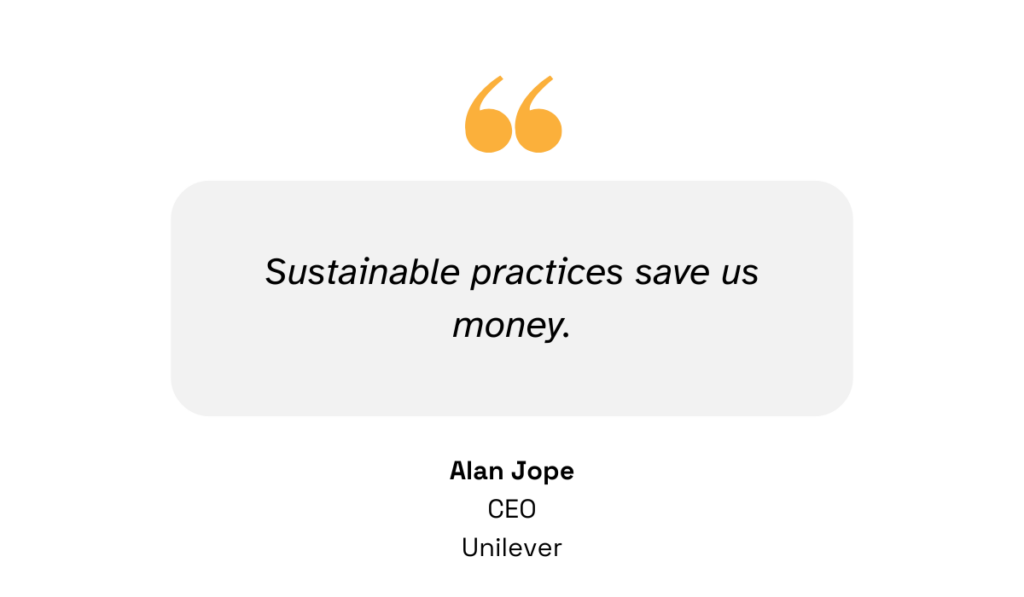
Illustration: Veridion / Quote: Supply Chain Dive
He acknowledges that transitioning to green procurement can be costly at first, but believes the long-term perks outweigh the initial expenses.
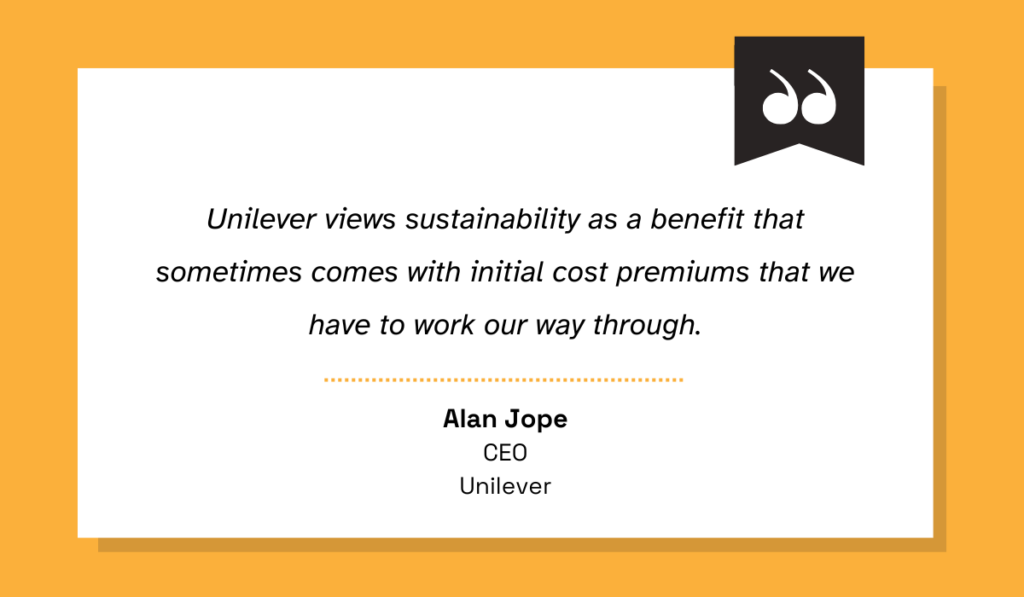
Illustration: Veridion / Quote: Supply Chain Movement
Ultimately, experts in sustainable procurement understand it’s a long-term game.
Yes, it requires an upfront investment in terms of time, effort, and resources.
But eventually, it yields rewards that benefit everyone involved: the environment, communities, and companies.
In sustainable procurement, the best suppliers are those who innovate—who offer sustainable alternatives and new technologies that advance your environmental or social goals.
At the end of the day, we can’t keep doing things the same way if we want to make real change and protect the planet.
We need to rethink and reinvent how we operate.
Take Apple, for example.
In 2022, the company announced that the new iPhone SE would use zero-carbon aluminum (shown below) produced by ELYSIS, the developer of the world’s first carbon-free smelting process.

Source: Apple
This marked the first time aluminum had been produced and sold at an industrial scale without generating direct carbon emissions during smelting.
It was a major milestone in the production of one of the world’s most widely used metals.
This is exactly what true sustainable procurement champions do.
They look beyond what’s familiar and boldly dive into uncharted waters if it means it’s going to get their organizations closer to their targets.
There is no sustainability without transparency.
To master sustainable procurement, you need clear visibility into your supply chain, understanding who your suppliers are, how they operate, and the risks they pose.
A recent survey by Ignite and EY reveals that 52% of companies already prioritize improving data collection and reporting to advance sustainable procurement efforts.
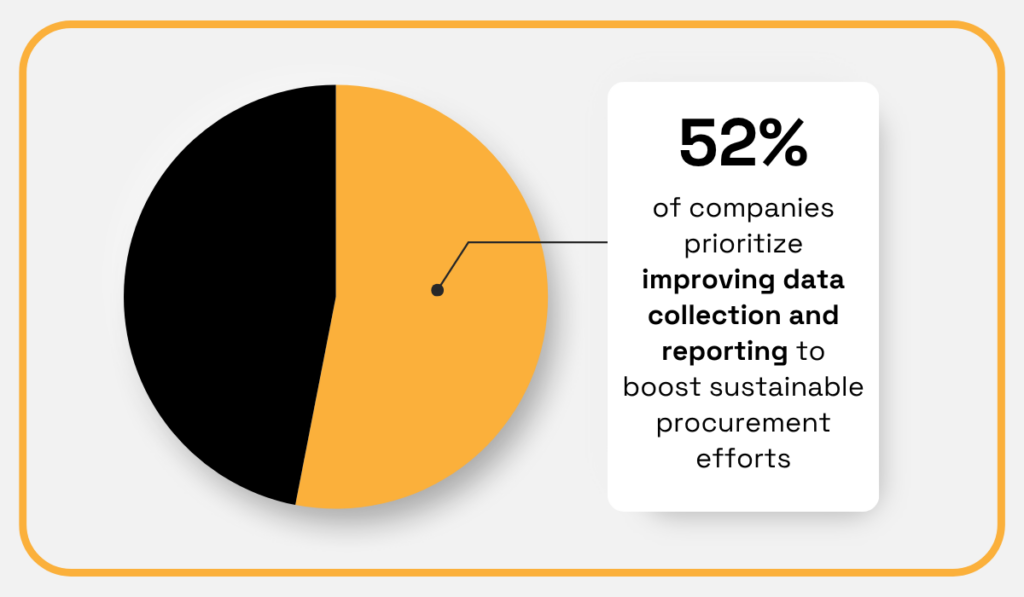
Illustration: Veridion / Data: Ignite
However, ESG data collection isn’t easy.
It takes time, effort, and resources that many just don’t have.
Moreover, global supply chains often span multiple supplier tiers across different countries, each with varying regulations, languages, and reporting capabilities.
How do you even begin to navigate that?
And how can you ensure the information you find is up-to-date, accurate, and complete?
The answer is Veridion.
Veridion is an AI-powered market intelligence platform with access to a global database covering over 120 million companies across 200+ geographies.
Updated weekly, it offers audit-ready scores without requiring company disclosures.
Using a unique, granular scoring framework, Veridion assesses companies at multiple levels, providing three distinct layers of ESG scoring.
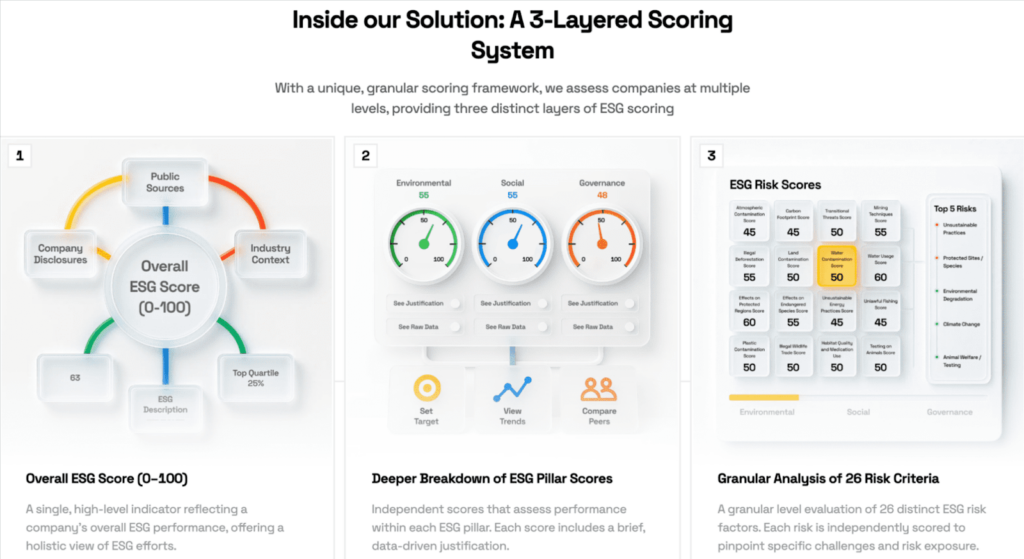
Source: Veridion
But Veridion delivers more than just scores.
It also provides explainable ESG data that goes beyond static ratings.
From emissions to ethics, from commitments to controversies, our platform captures what companies actually do, not just what they promise to do:
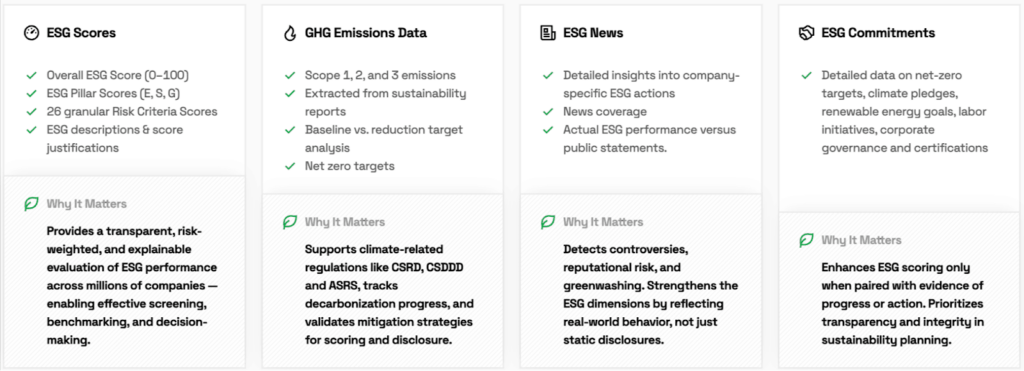
Source: Veridion
Ultimately, with Veridion’s data at your fingertips, you can confidently assess risks and performance no matter how far down your supply chain they lie.
This empowers you and your team to make data-driven and truly sustainable decisions every single time.
Sustainable procurement truly challenges us to rethink every purchase decision.
It’s not enough to just look at it through the lens of cost and convenience, but with a deeper commitment to people, planet, and purpose.
So, if you’re going to commit to mastering sustainable procurement, you’ll need to choose transparency over shortcuts, view your suppliers as allies in progress, and invest in data.
Companies like Renault, Unilever, and SPAR have already proven that this is both possible and highly rewarding.
Your next procurement decision is an opportunity to create lasting change.
Are you going to take it?